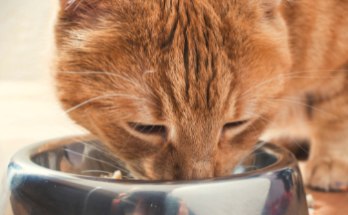It’s concerning when your beloved senior cat refuses to eat but drinks a lot of water. In such situations, understanding the underlying reasons and finding effective solutions are crucial. Let’s delve into the top 10 reasons why your older cat might be experiencing this issue and explore potential remedies:

Older Cat Not Eating But Drinking: Top 10 Reasons
1. Dental Problems
Older cats often face dental issues, making it difficult for them to chew their food comfortably. Look out for signs such as missing teeth or gum inflammation, and consult your vet for appropriate treatment options. Soft dry cat food can be a suitable alternative to address this issue.
2. Gastrointestinal Disease
Stomach problems like vomiting, diarrhea, or constipation can lead to dehydration and loss of appetite in older cats. If you notice any digestive issues, seek veterinary attention promptly to diagnose and treat the underlying cause.
3. Liver Disease
Liver disease can cause anorexia and excessive thirst in senior cats. Watch out for symptoms such as nausea, vomiting, and jaundice, and consult your vet for proper diagnosis and treatment.
4. Kidney Disease
Kidney disease is common in older cats and can result in increased water consumption and decreased appetite. Monitor your cat’s water intake and seek veterinary advice if you suspect kidney issues.
5. Hyperthyroidism
Hyperthyroidism can cause weight loss and heightened thirst in senior cats. If your cat exhibits symptoms like increased hunger and restlessness, consult your vet for thyroid function tests and appropriate treatment.
6. Diabetes
Diabetes can affect your cat’s appetite and water consumption. Keep an eye on their weight and blood sugar levels, and consult your vet for proper management strategies.
7. Hypothyroidism
Hypothyroidism, characterized by decreased thyroid hormone production, can lead to weight gain and lethargy in senior cats. Consult your vet for diagnostic tests and tailored treatment plans.
8. Loss of Sense of Smell
A diminished sense of smell can deter your cat from eating, as they may not detect food spoilage. Ensure a fresh and appealing diet for your cat, and consider offering aromatic foods to stimulate their appetite.
9. Dehydration
Older cats are prone to dehydration due to kidney function decline and medical conditions. Provide access to fresh water at all times and monitor their hydration status closely.
10. Stress, Fear, or Anxiety
Changes in the environment or routine can induce stress in older cats, leading to decreased appetite. Create a calm and familiar environment for your cat and offer reassurance and comfort during periods of distress.
Conclusion
Dealing with an older cat not eating but drinking excessively can be challenging, but understanding the underlying reasons is the first step towards finding a solution. By identifying potential health issues and implementing appropriate management strategies, you can help your senior cat maintain a healthy appetite and overall well-being.
Relevant Articles:




